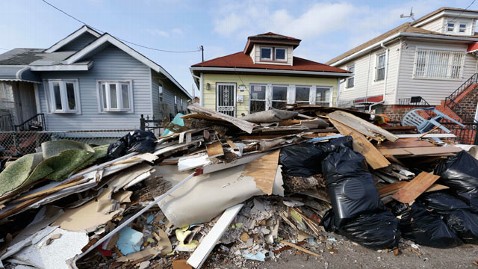The Federal Aviation Administration has ordered the grounding of Boeing 787 Dreamliner jets until their U.S. operator proves that batteries on the planes are safe.
United is the only U.S. carrier flying the Boeing 787s, which have been touted as the planes of the future. However, several operated by overseas airlines have run into recent trouble, the latest because of a feared battery fire on a 787 today in Japan.
The FAA's so-called emergency airworthiness directive is a blow to Boeing, from the same government agency that only days ago at a news conference touted the Dreamliner as "safe." Even Secretary of Transportation Ray LaHood went so far as to say he would have no issue flying on the plane.
Now, United will need to prove to the FAA that there is no battery fire risk on its six Dreamliners. An emergency airworthiness directive is one that requires an operator to fix or address any problem before flying again.
"Before further flight, operators of U.S.-registered Boeing 787 aircraft must demonstrate to the Federal Aviation Administration (FAA) that the batteries are safe and in compliance," the FAA said in a statement today. "The FAA will work with the manufacturer and carriers to develop a corrective action plan to allow the U.S. 787 fleet to resume operations as quickly and safely as possible."
United Airlines responded tonight with a statement: "United will immediately comply with the airworthiness directive and will work closely with the FAA and Boeing on the technical review as we work toward restoring 787 service. We will begin reaccommodating customers on alternate aircraft."
787 Dreamliner Grounded, Passengers Forced to Evacuate Watch Video
Boeing 787 Dreamliner Deemed Safe Despite Mishaps Watch Video
Jim McNerney, Boeing's chairman, president and CEO, expressed regret about any scheduling disruptions in a written statement, adding that Boeing was "confident the 787 is safe and we stand behind its overall integrity."
"The safety of passengers and crew members who fly aboard Boeing airplanes is our highest priority," McNerney said. "Boeing is committed to supporting the FAA and finding answers as quickly as possible. The company is working around the clock with its customers and the various regulatory and investigative authorities. We will make available the entire resources of The Boeing Company to assist."
There are some 50 Dreamliners flying in the world, mostly for Japanese airlines, but also for Polish and Chilean carriers.
Overseas operators are not directly affected by the FAA's emergency airworthiness directive -- but Japanese authorities grounded all of their 787s overnight after All Nippon Airways (ANA) said a battery warning light and a burning smell were detected in the cockpit and the cabin, forcing a Dreamliner, on a domestic flight, to land at Takamatsu Airport in Japan.
The plane landed safely about 45 minutes after it took off and all 128 passengers and eight crew members had to evacuate using the emergency chutes. Two people sustained minor injuries on their way down the chute, Osamu Shinobe, ANA senior executive vice president, told a news conference in Tokyo.
ANA and its rival, Japan Airlines (JAL), subsequently grounded their Dreamliner fleets. ANA operates 17 Dreamliner planes, while JAL has seven in service.
Both airlines said the Dreamliner fleet would remain grounded at least through Thursday.
ANA said the battery in question during today's incident was the same lithium-ion type battery that caught fire on board a JAL Dreamliner in Boston last week. Inspectors found liquid leaking from the battery today, and said it was "discolored."
Japan's transport ministry categorized the problem as a "serious incident" that could have led to an accident.
Even more shaken up than the passengers on the Japanese flight may be the reputation of America's largest plane manufacturer, Boeing.
Since the 787 -- with a body mostly made of carbon fiber -- was introduced, it's had one small problem after another. But the nagging battery issue, which caused an onboard fire at Boston's Logan Airport last week, was serious enough for the FAA to ground the plane.
"It's a rough couple weeks for Boeing and ANA," said John Hansman, an MIT professor of aeronautics and astronautics. "I think clearly in the short term this type of bad press has been tough for Boeing. I think in the long haul, this is a good airplane. It's in a good market."










